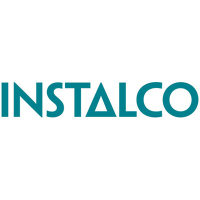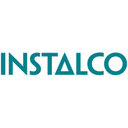
Instalco AB
STO:INSTAL


| US |

|
Johnson & Johnson
NYSE:JNJ
|
Pharmaceuticals
|
| US |

|
Berkshire Hathaway Inc
NYSE:BRK.A
|
Financial Services
|
| US |

|
Bank of America Corp
NYSE:BAC
|
Banking
|
| US |

|
Mastercard Inc
NYSE:MA
|
Technology
|
| US |

|
UnitedHealth Group Inc
NYSE:UNH
|
Health Care
|
| US |

|
Exxon Mobil Corp
NYSE:XOM
|
Energy
|
| US |

|
Pfizer Inc
NYSE:PFE
|
Pharmaceuticals
|
| US |

|
Palantir Technologies Inc
NYSE:PLTR
|
Technology
|
| US |

|
Nike Inc
NYSE:NKE
|
Textiles, Apparel & Luxury Goods
|
| US |

|
Visa Inc
NYSE:V
|
Technology
|
| CN |

|
Alibaba Group Holding Ltd
NYSE:BABA
|
Retail
|
| US |

|
3M Co
NYSE:MMM
|
Industrial Conglomerates
|
| US |

|
JPMorgan Chase & Co
NYSE:JPM
|
Banking
|
| US |

|
Coca-Cola Co
NYSE:KO
|
Beverages
|
| US |

|
Walmart Inc
NYSE:WMT
|
Retail
|
| US |

|
Verizon Communications Inc
NYSE:VZ
|
Telecommunication
|
Utilize notes to systematically review your investment decisions. By reflecting on past outcomes, you can discern effective strategies and identify those that underperformed. This continuous feedback loop enables you to adapt and refine your approach, optimizing for future success.
Each note serves as a learning point, offering insights into your decision-making processes. Over time, you'll accumulate a personalized database of knowledge, enhancing your ability to make informed decisions quickly and effectively.
With a comprehensive record of your investment history at your fingertips, you can compare current opportunities against past experiences. This not only bolsters your confidence but also ensures that each decision is grounded in a well-documented rationale.
Do you really want to delete this note?
This action cannot be undone.

| 52 Week Range |
28.86
52.9
|
| Price Target |
|
We'll email you a reminder when the closing price reaches SEK.
Choose the stock you wish to monitor with a price alert.

|
Johnson & Johnson
NYSE:JNJ
|
US |

|
Berkshire Hathaway Inc
NYSE:BRK.A
|
US |

|
Bank of America Corp
NYSE:BAC
|
US |

|
Mastercard Inc
NYSE:MA
|
US |

|
UnitedHealth Group Inc
NYSE:UNH
|
US |

|
Exxon Mobil Corp
NYSE:XOM
|
US |

|
Pfizer Inc
NYSE:PFE
|
US |

|
Palantir Technologies Inc
NYSE:PLTR
|
US |

|
Nike Inc
NYSE:NKE
|
US |

|
Visa Inc
NYSE:V
|
US |

|
Alibaba Group Holding Ltd
NYSE:BABA
|
CN |

|
3M Co
NYSE:MMM
|
US |

|
JPMorgan Chase & Co
NYSE:JPM
|
US |

|
Coca-Cola Co
NYSE:KO
|
US |

|
Walmart Inc
NYSE:WMT
|
US |

|
Verizon Communications Inc
NYSE:VZ
|
US |
This alert will be permanently deleted.
 Instalco AB
Instalco AB
Instalco AB
Investor Relations
Instalco AB engages in the provision of installation services. The company is headquartered in Stockholm, Stockholm and currently employs 4,887 full-time employees. The company went IPO on 2017-05-11. The firm offers installation and regular repairs of district heating, plumbing replacement, new construction and preventive maintenance; design, installation, and maintenance of electrical installation; technical solutions and installation of ventilation solutions for air treatment, air conditioning and indoor climate; design, installation and maintenance of water sprinklers; industrial pipe systems, machinery installation and installations of cooling systems, as well as installation of switchgear, transformers, busbars and power stations, among others. The services are designed mainly for commercial premises, housing, public construction, warehousing, offices and retail trade, as well as process industries. The firm operates in Sweden, Norway and Finland through numerous subsidiaries.

Instalco AB engages in the provision of installation services. The company is headquartered in Stockholm, Stockholm and currently employs 4,887 full-time employees. The company went IPO on 2017-05-11. The firm offers installation and regular repairs of district heating, plumbing replacement, new construction and preventive maintenance; design, installation, and maintenance of electrical installation; technical solutions and installation of ventilation solutions for air treatment, air conditioning and indoor climate; design, installation and maintenance of water sprinklers; industrial pipe systems, machinery installation and installations of cooling systems, as well as installation of switchgear, transformers, busbars and power stations, among others. The services are designed mainly for commercial premises, housing, public construction, warehousing, offices and retail trade, as well as process industries. The firm operates in Sweden, Norway and Finland through numerous subsidiaries.





























 You don't have any saved screeners yet
You don't have any saved screeners yet
